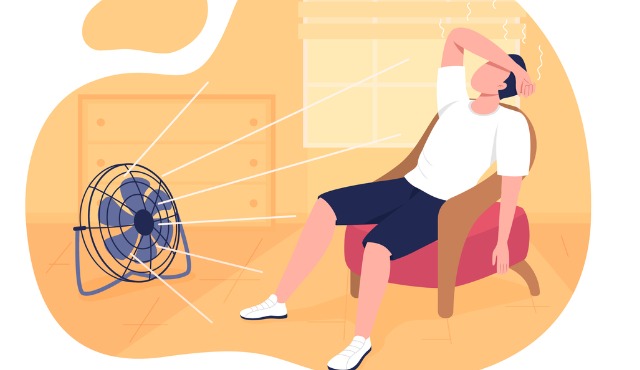By Brentnie Daggett, Rentec Direct
Summer is in full swing, and here in my home state of Oregon we’ve already experienced our first heat wave of 2022. Our homes have long been designed to protect us from the cold and the elements, but what about high temperatures? Many homeowners may not realize that extreme heat can affect their homes in a number of ways.
Potential Damage From High Temperatures
Although tornadoes, hurricanes, earthquakes and other natural disasters typically cause drastic property damage, excessive temperatures can also contribute to another catastrophic event: wildfire. Here in the West, we’ve lost millions of acres of land to wildfire and thousands of structures and homes, just in the past couple of years. There are several best practices, such as creating defensible space around your home to mitigate this risk. However, there are many less extreme, but also worrisome, potential impacts on homes from heat waves. Here are a few of them:
- Structural Damage: Wooden homes can experience expansion and cracking as a result of high heat and a lack of moisture in the air – especially when it comes to roofs and floors. In addition, a lack of moisture in the area surrounding your foundation may lead to cracks, loose grip or other damage that can be considerably expensive to repair.
- Power Outages: Power outages are common during heat waves as the demand on the power grid accelerates drastically due to increased air conditioner usage. Electrical circuit shortages and electrical fires can also lead to severe home damage.
- Proper Insulation: Your windows, doors and roof are critical to protecting your home from extreme temperatures (hot or cold!). Rising temperatures can increase humidity inside your home if it’s not properly insulated, which can lead to mold growth and other water damage issues.
Tips to Prepare Your Home for a Heat Wave
Pay attention to temperature and humidity levels in your area and keep tabs on any elevated heat index advisories, warnings or watches.
- Paint: When choosing paint colors, think about which walls will be directly exposed to the sun for long periods of time and consider choosing a lighter paint color to deflect sunlight.
- Exterior: The Department of Energy recommends using light colored or heat-reflective exterior paint and adding a reflective coating on roofs and windows to help cool your home. Installing external window shares, awnings or even landscaping features to provide shade can also help keep your home cooler.
- Electronics: Regularly check electrical outlets and any wiring to make sure everything is functioning properly. Unplug any unused electronic devices and limit turning on unnecessary lights or electronics during a heat wave. Be prepared for power outages with items like flashlights and extra water.
- Cooling: If you have an air conditioning system, make sure it has been serviced recently and is in good working order. Replace or clean air filters before the summer hits. If you don’t have air conditioning, use ceiling and floor fans and blackout curtains to help try and keep your home cool.
- Stay Safe: Recognize the signs and symptoms of heat-related illness and follow advice like avoiding going outside during peak heat hours and avoiding strenuous activities. Always, always stay hydrated!
Heat waves are becoming more common and lasting longer across the country, and are something to keep in mind when considering a new or future home purchase. Extreme heat can lead to internal and external home damage, but you can help protect yourself and your home from potential damage with some research and a few preparation steps.
 Brentnie Daggett is a writer and infographic master for the rental and property management industry. She loves to share tips and tricks to assist landlords and renters alike. To learn more about Daggett, and to discover more great tips for renters, visit www.rentecdirect.com.
Brentnie Daggett is a writer and infographic master for the rental and property management industry. She loves to share tips and tricks to assist landlords and renters alike. To learn more about Daggett, and to discover more great tips for renters, visit www.rentecdirect.com.








